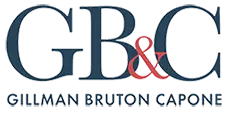Another frequent question I get from clients is–if I file a bankruptcy do I have to appear in Court? Well the answer is sort of. You may have to go to the Courthouse, but you will not be appearing in front of a Judge in a court room. You will have to appear at what is called your 341a Hearing, which is conducted by your Trustee. The hearing, at least here in New Jersey where I practice, is conducted in a hearing room or at the Trustee’s office. So that is about as close as you will come to having to appear in Court.
Nevertheless, even the mention of that hearing sends many of my clients into a panic. The truth is there is no need to panic, the hearing is actually quite painless. The key is to have a competent, experienced bankruptcy attorney handling your case. If you have such an attorney, the hearing will be very painless indeed. In fact, most of my client’s leave these hearings and say, “that was it, that’s what I was worried about.”
An experienced bankruptcy practitioner will send the Trustee all of the paperwork that is routinely requested by the Trustee weeks prior to your hearing and will follow up with the Trustee’s office as to whether there is anything else needed or any other questions that need to be addressed. As long as the Trustee has the documents that he needs prior to your hearing and has had time to review them, it will make the hearing go much more smoothly. The fact is the Trustee’s role is to administer your case and his primary purpose at the 341a hearing is to verify the truthfulness of your petition. If the necessary documentation is provided to allow him to do that prior to the hearing it saves a lot of time at the hearing. It also makes the Trustee’s job easier, which is always a good idea and helps the hearing go smoothly.
Prior to the hearing, an experienced attorney will go over every question that a Trustee will ask you so that you are prepared. These questions will mostly revolve around your assets, liabilities, income and expenses. An experienced attorney will also be able to point out anything in your petition that may perk the interest of a Trustee and prepare you for those potential questions. Being prepared obviously makes the hearing go smoothly.
Clients also ask if any creditors are going to show up at their hearing. The answer is most likely no one will appear. My experience is maybe in 1 out of 500 cases does a creditor appear to ask questions. Even if they do, the creditor is only permitted to ask general questions about your assets, liabilities, income and expenses. If the creditor wishes to get more specific and detailed they would have to take a Rule 2004 examination, which is a deposition, which they will not do as it is time consuming and costly for the creditor. So only in extreme cases where a creditor is claiming that you defrauded them in some way and there is a large amount of money owed to that creditor would they even consider taking your deposition. It is a very rare occurrence in a personal bankruptcy case.


